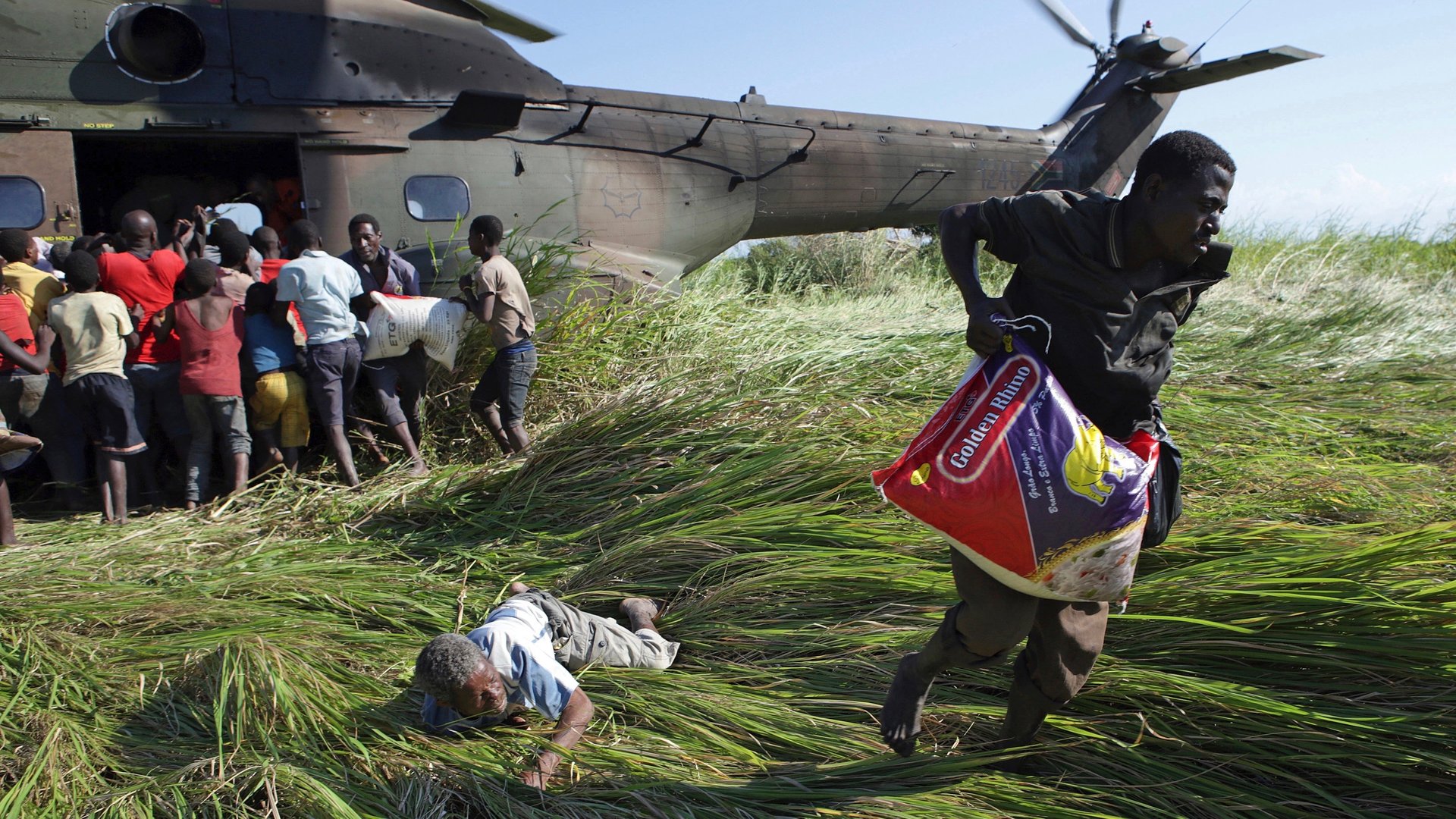The devastation of Cyclone Idai has inspired homegrown aid efforts with help from the diaspora
Nearly two weeks after Cyclone Idai battered southeast Africa, leaving more than 750 dead, rescue operations are still overwhelmed with the scale of the unfolding disaster. They’re appealing to the world for help.


Nearly two weeks after Cyclone Idai battered southeast Africa, leaving more than 750 dead, rescue operations are still overwhelmed with the scale of the unfolding disaster. They’re appealing to the world for help.
Crowdfunding platform GoFundMe now has more than 220 campaigns to help victims of Cyclone Idai. Many of them are organized by Mozambicans and Zimbabweans living abroad. Guy de Miranda was born in Beira and now lives in London and is trying to raise £7,000 for the Beira Orphanage, the Mozambican port city hardest hit by the storm. The death toll in Mozambique has risen to 446, with more feared dead as mop-up operations continue.
Naira Abdula, a student at Skidmore College in Saratoga Springs in the US, started a GoFundMe campaign with two other Mozambican friends whose families are all still in Beira. Along with nearly raising $25,000, Abdula says she is returning to Beira this week to organize a network of local volunteers to assist their affected neighbors, and to begin cleaning up the city. The three friends will also work with the World Food Program and the Peace Corps to oversee their mission.
“It is as if Beira no longer exists,” she wrote.
Zimbabweans in the diaspora have also stepped up to aid the battered town of Chimanimani and surrounding areas, where 259 people were killed. Freeman Chari, a Zimbabwean refugee living in Ohio, raised more than $84,000 from less than 2,000 donations averaging $44,50 each, according to a report in the Christian Science Monitor. It’s a testament, he says, to Zimbabwe’s diaspora who want to rebuild the country from afar.
Still, despite the good intentions of donors, questions have been raised about how the money will be spent once it lands in Zimbabwe. The opposition party, the Movement for Democratic Change, has already accused the military of looting donations.
When crisis hits there are always those who will try to manipulate the disaster. GoFundMe has a guide on how to identify fraudulent campaigns and a checklist to determine if a campaign is safe. Established aid organizations are also on the ground in Malawi, Mozambique and Zimbabwe and are calling for donations.
Doctors Without Borders is supplementing a health system damaged by the storm and are racing to prevent a cholera outbreak. There is also the Health Alliance International, which is raising funds specifically for the Mozambican Ministry of Health. In Mozambique, reputable South African Islamic charity organization, Gift of the Givers, has supplied two of the few helicopters used to find survivors still clinging to rooftops and are handing out water and clothes in the displacement camps.
The United Nations has released $20 million of its emergency fund but says the World Food Program needs $121 million in Mozambique alone. Multiple UN agencies, like Unicef, are on the ground and calling for donations.
These established aid organizations are also a reliable way to help Malawi, where the death toll is 59 and has garnered less attention. Oxfam, for example, is distributing supplies to the more than 1,000 families now living in the Bangula camp after their homes in the southeastern Nsanje district were flooded. Catholic Relief services have a presence in all three countries and are providing food, water and shelter with the help of donations.
The International Committee of the Red Cross has also established the Restoring Family Links website as a centralized port to help Mozambicans, Malawians and Zimbabwean at home and abroad to help locate missing loved ones, or for those in affected cities to register as safe.